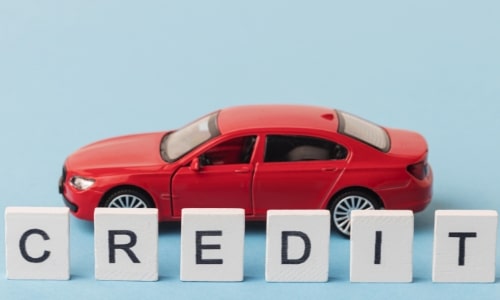What is a Car Loan and How Does it Work?
Buying a car often represents a significant investment. For many people, a car loan is the key to making this purchase manageable. But do you know how car loans work? Understanding how car loans work can help you navigate the financing options and make an informed decision.
In simple terms, a car loan provides a lump sum of money to buy a vehicle, which you then repay in monthly installments over time. During this repayment period, the lender retains the title to your car, holding a claim on the vehicle until the full repayment. Generally, a higher credit score can help you secure a lower interest rate, and shorter loan terms often come with better rates.
Now that you are familiar with the term, let’s delve deeper into how do car loans work:
Top Car Loan Plans in Dubai
How Do Car Loans Work?
Car loans are a common way to finance a vehicle when you don't have enough cash to pay for it outright. They make purchasing a car more affordable by breaking up the cost into monthly payments.
But how much you’ll be able to borrow depends on the vehicle and your financial situation, such as your income, employment status, and credit history. Here’s a breakdown of how they work:
- Your lender will review your application, credit Score, and financial situation to determine your eligibility and the terms of the loan.
- The monthly payments you make on a vehicle loan will go toward both the principal loan amount and the interest levied by the lender.
- Your overall interest charges will be determined by the interest rate you qualify for. In general, a higher credit score results in a lower interest rate.
- Many lenders also offer reduced rates to consumers who choose shorter payback durations.
- You should know the lender maintains a lien on the car until the loan is fully repaid. This means they have a legal claim to the car until you repay the loan.
- Once you complete all payments, the lender will release the lien, and the title of the car will be transferred to you.
- The length of time you have to repay the loan typically goes up to 60 months.
- If you miss payments or fail to meet the terms of the loan, the lender can declare the loan in default.
Understanding these aspects can help you make informed decisions when taking a loan.
Key Terms to Know How Car Loans Work
Before applying for a car loan, familiarizing yourself with some financial terms can help you understand the details of your loan agreement better.
Here are the key terms that you should know:
- Principal Amount: The amount of money you borrow to purchase the car. This is the base amount on which interest is calculated.
- Annual Percentage Rate (APR): The Annual Percentage Rate (APR) is a calculation of the interest rate plus any additional costs associated with the loan. Both are expressed as percentages. The APR you receive will be based on several factors, with the most important being your credit history and credit score.
- Interest Rate: The percentage charged by the lender for borrowing the principal amount. It can be fixed (constant throughout the loan term) or variable (changing periodically based on market conditions). It's comparable to APR (Annual Percentage Rate), but without the loan fees.
- Loan Term: The length of time in which you have to repay the loan. In the UAE, the maximum car loan tenure is typically 60 months. Longer terms result in lower monthly payments but may increase the total interest paid.
- Down Payment: The amount you pay towards the purchase of the vehicle, reducing the amount you need to borrow. A larger down payment can lead to a lower loan balance and potentially better loan terms.
- Amortization: The process of gradually paying off your loan through regular monthly payments. Each payment reduces the loan balance and covers interest costs. In the early months, a higher percentage of payment goes to interest and later it goes to the loan principal. This will make your principal decrease more quickly towards the end of the loan.
- Lien: A legal claim the lender has on the vehicle until the loan is fully repaid. If you default on the loan, the lender has the right to repossess the car.
- Credit Score: A numerical representation of your creditworthiness used by lenders to determine the risk of lending to you. Higher credit scores typically result in lower interest rates and better loan terms.
- Car Financing: Car financing refers to the process of securing a loan to purchase a vehicle. This financial arrangement allows you to buy a car without paying the full price upfront, instead you pay for it over time through monthly installments.
- Total Car Cost: The total loan amount (principal, interest, down payment, or trade-in) you will pay over the course of your car loan.
- Loan-to-value Ratio: It is the ratio of your car's value to the loan amount. Because auto loans employ the vehicle as collateral, the loan-to-value ratio, or LTV, allows lenders to assess their own risk when accepting a loan. The LTV can influence your loan rate and eligibility.
How to Qualify for a Car Loan?
Qualifying for a car loan involves meeting certain criteria set by lenders to ensure you’re capable of repaying the loan. Here’s a step-by-step guide to help you understand the process and improve your chances of securing a car loan:
-
Check Your Credit Score
Your credit score determines your loan eligibility and the interest rate. Lenders use it to determine your creditworthiness and financial reliability. Hence, you should aim for a higher credit score to secure better terms.
However, several lenders provide loans to borrowers with bad credit. The only drawback is the higher interest rates. That’s why, it's always a good idea to check your credit score from time to time on policybazaar.ae to see where you stand.
-
Assess Your Financial Situation
Lenders want to ensure you have a stable income to cover monthly payments. So, you will need to show that you can afford to repay the loan by providing proof of income such as pay stubs, tax returns, or bank statements. This ratio compares your debt payments to your total monthly income. A lower ratio suggests a greater ability to handle more debt. So, it’s better to aim for a ratio no higher than 50%.
-
Determine Your Budget
Calculate how much you can afford to pay each month based on your income and expenses. Use an auto loan calculator to estimate payments based on different loan amounts, terms, and interest rates. Additionally, a larger down payment reduces the amount you need to borrow and can improve your chances of approval. Aim to make a down payment of at least 20% of the vehicle’s purchase price.
How to Apply for Auto Loan Via Policybazaar UAE?
- Pick your loan type: Go to policybazaar.ae and look for “Car Loans” in the “Banking Products” drop-down.
- Enter your details: Fill out the form by providing your details like name, email ID, number, monthly income, and nationality to help determine your car loan eligibility.
- Browse your loan options: Explore a range of auto loan options from various lenders to find the best fit for your needs. Compare the interest rates, loan terms, fees, and other conditions.
Note: You can use our car loan calculator to enter different loan amounts, rates, and terms to explore alternative payment options. By using this, you can get an estimation of your installments before actually getting a loan.
| Apply for Car Loan |
Requirements for Applying for Car Loan
Here are the following documents you’ll need to fulfill before applying for a car loan:
- Salary certificate/proof of income
- Valid passport/UAE Residence visa
- Security Cheque
- Post-dated cheques
- 3 months of bank statements
- Insurance policy documents
- Driving license
For used cars, you will require:
- Valuation certificate of the car
- Ownership title
- Car’s registration
- A quotation or offer
The approval procedure may begin with a prequalification and involves a credit score check. Your credit may be soft-pulled as a result of this, which means it won't have an impact on your credit scores.
Your credit scores may suffer if the lender pulls a hard inquiry on your credit after you proceed with a full application and are preapproved. Furthermore, when you submit a complete application, your loan conditions and approval can change even if you are pre-qualified. There won't be much of an adverse effect on your credit, though, if you complete all of your loan comparison shopping within a constrained time frame.
Can Someone Else Take Over a Car Loan?
The short answer is: probably not in an official capacity, but it’s worth checking with your lender. If the lender permits, the person applying for the loan may need to go through an application process. So, you can have a chance to talk a generous friend or relative into helping you out with the payments until you recover and can repay them.
But keep in mind that failing to make payments can lead to the repossession of your vehicle. Crucially, you would still be the owner of the default since the loan would still be in your name.
Here are some more choices to think about if you are close to default:
- Consult your lender. You might be able to apply for a payment deferment or extension, or you could seek an extension on your due date.
- Try to arrange a repayment schedule.
- Aim for a lower interest rate on the loan refinancing.
Wrapping Up
There's no one-size-fits-all method for choosing the ideal auto loan. Hence, you should take the time to check how do car loans work and choose the option that suits you best.
Some might get benefits by taking a longer-term loan to reduce monthly payments. While others may prefer to make higher monthly payments to pay the loan sooner.
So, before diving into an auto loan, look at your monthly budget to see if you can afford loan payments. If not, then you may want to consider applying with a co-signer. Also, take time to decide if you want to trade in a vehicle to help lower the cost. Also, ensure all of the documentation is correctly signed before driving away with your new car.
Here are some frequently asked questions about how do car loan works to give you a better understanding of the topic:
Frequently Asked Questions
The majority of auto loans require a minimum monthly income of AED 5,000.
You can pay your car loan early. However, the early payment is subject to change from bank to bank. So, it’s essential to read the terms and conditions of your loan.
Your interest is computed on a simple interest loan based on the loan balance on the due date of your auto payment. When you have a car loan with precomputed interest, the interest is determined based on the entire loan amount at the beginning of the loan term.
More From Car Loans
- Recent Articles
- Popular Articles





























